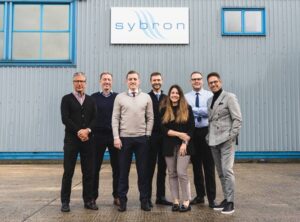Acing UCAS applications: 5 tips on how to prepare for your Oxbridge interview

The first deadline for UCAS applications are coming up on 15 October for the cohort of students looking to secure a place at Oxford and Cambridge University in 2023. Interviews are the next step in the application, and take place in December after UCAS applications are submitted. For many, the interview can be the most nerve-racking part of the entire process. It’s the opportunity to meet your admissions tutors face to face, make a lasting impression and set yourself apart. MyTutor- the UK’s most trusted tutoring platform, has a specific tutors that have been through the Oxbridge applications before and succeeded and are available to give expert advice in one-to-one sessions with the service. To aid students looking to garner a place at either Universities, MyTutor has put together a list of 5 top tips to help applicants succeed in their next step towards Oxbridge.
Know what makes a good interview
From the start, you should be thinking about the kind of attributes you want to convey to your interviewers. Admissions tutors are looking for students who are passionate about their subject, committed to studying hard, and capable of making interesting, logical, and well-informed arguments. While this may seem like some daunting criteria, it should help to set your mind at ease. Succeeding in the interview is not about making neat, brilliant points or responding to impossible questions. Your interviewers simply want to see how you think and how interested you are in the subject. Be prepared to show them that you’re passionate about the next steps in your academic journey.
Know your personal statement inside out
Your personal statement is where you’ve outlined what makes you passionate about your chosen subject, so your interviewer may choose to base their questions on what you’ve written.
For this reason, you need to know your personal statement extremely well. If you’ve mentioned a book, author, play, historical figure, or anything specific in your personal statement, make sure you’re able to talk about them confidently and with a sense of authority. If you can do this, the questions on this area will seem easy.
Think about the theoretical questions
As serious academics, your interviewers want to see that you are able to engage with their subject on a theoretical level. This means being prepared to talk about the slightly more abstract questions surrounding your subject. So for example, if you are an historian be prepared to answer open-ended questions like ‘what is history?’, or ‘is progress inevitable?’ Likewise for a lawyer, ‘what is justice?’, or ‘what is the role of law in society?’ Don’t be afraid of these kinds of questions – there is no right answer to them. What is important is your ability to approach them thoughtfully. So, get comfortable with reading, thinking and talking about your subject at a theoretical level and you will really set yourself apart in the interview.
Practice, Practice, Practice
While you can never predict exactly what you will be asked in the interview, practice is key to feeling confident in your answers. Ask a teacher, a friend, or a family member to sit down with you and ask you some interview-style questions. It can be awkward at the beginning, but your confidence will dramatically improve the more practice you have talking through your ideas, and why you’re passionate about attending your University of choice.
Be prepared to enjoy it!
Oxbridge interviews are an opportunity for you to get a sense of what studying at Oxford or Cambridge will actually be like – and they’re not meant to be scary. The more you can treat your interview like the tutorials you will eventually be having (that is, a chance to learn and explore ideas in a field you’re excited about), the better placed you will be to shine, and the less worrying the whole thing will be when you get there.



